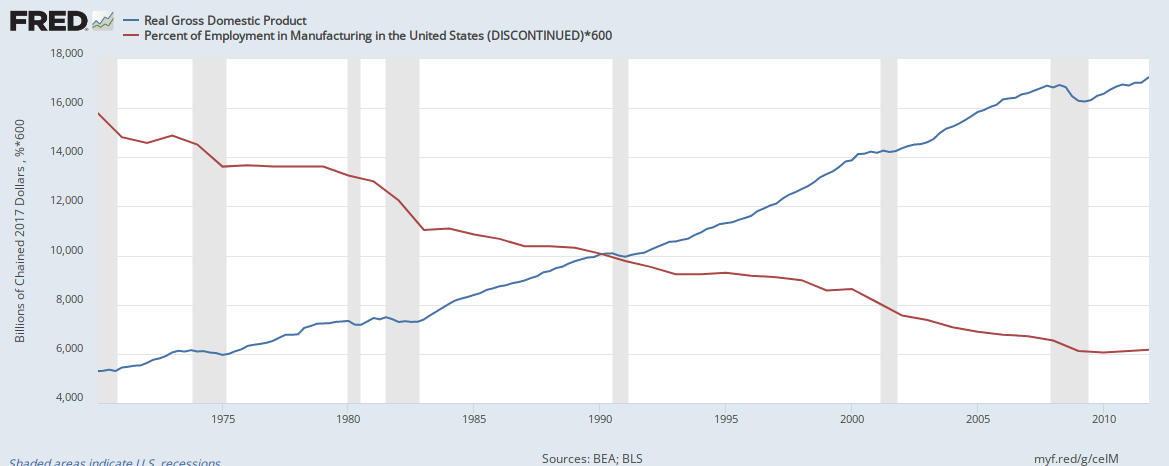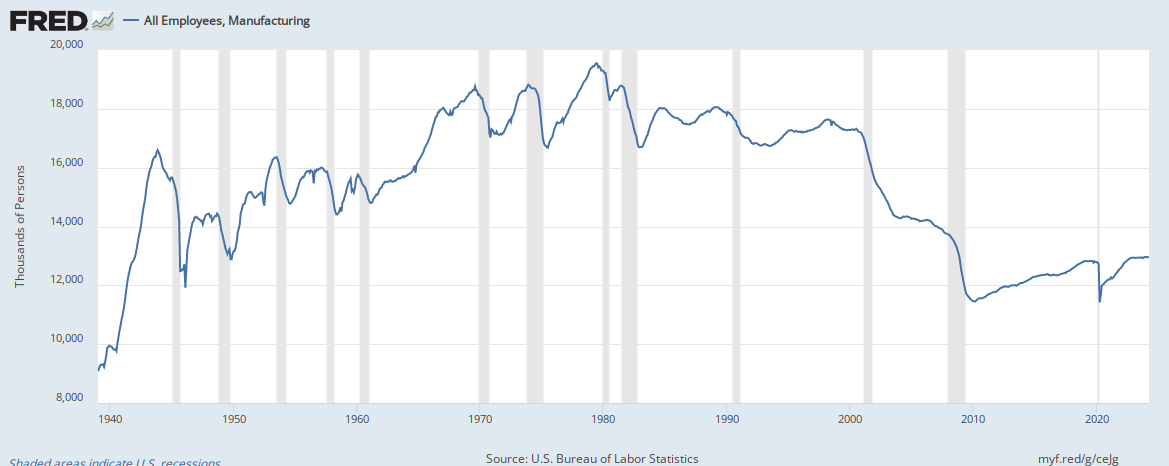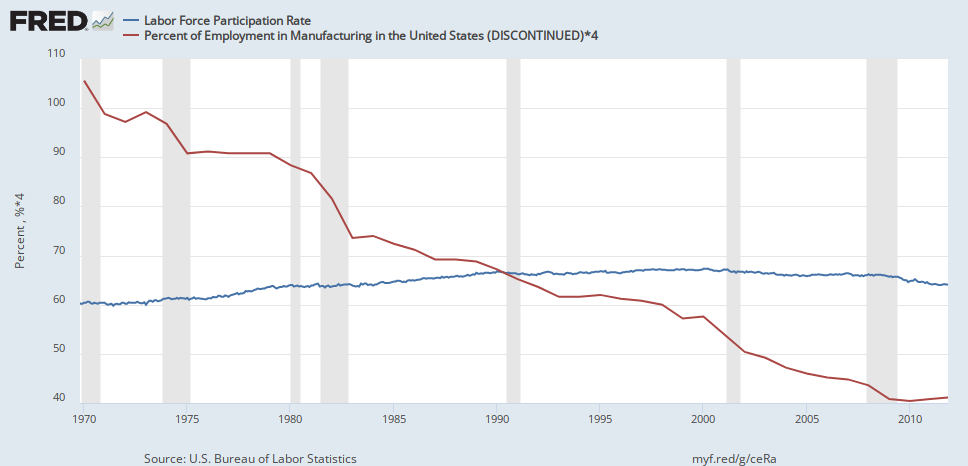- Joined
- Nov 28, 2011
- Messages
- 23,282
- Reaction score
- 18,292
- Gender
- Undisclosed
- Political Leaning
- Other
"TED?" Are you incapable of reading?:lamo TED graphs.... :lamo
It's FRED -- it's the St Louis Federal Reserve, which offers graphs of government data.
lolHere is your 'real world'.
Forecasts by the Boston Consulting Group constitute the "real world?" Who knew?
Did you even read your own link?
First of all, it's predicting a 22% growth in auto output -- with a 0.2% increase in auto industry jobs. (Adding 15,000 workers to the 6,200,000 current auto workers.)
Yet again, you are incapable of distinguishing output from jobs.
Second, it is telling you exactly what I said:
Employment. In our analysis of Industry 4.0’s impact on German manufacturing, we found that the growth it stimulates will lead to a 6 percent increase in employment during the next ten years. (See Exhibit 4.) And demand for employees in the mechanical-engineering sector may rise even more—by as much as 10 percent during the same period. However, different skills will be required. In the short term, the trend toward greater automation will displace some of the often low-skilled laborers who perform simple, repetitive tasks. At the same time, the growing use of software, connectivity, and analytics will increase the demand for employees with competencies in software development and IT technologies, such as mechatronics experts with software skills. (Mechatronics is a field of engineering that comprises multiple engineering disciplines.) This competency transformation is one of the key challenges ahead.
They're not saying "there will be 6% growth in manufacturing employment." They're saying that the growth that results from automation will lead to a 6% increase in all types of employment, most of which falls into the "other" category. Engineers in particular will be in high demand.
The authors then go on to point out that workers must upgrade their skills, in order to keep up with the changing economy.
Please try to pay more attention to your own links next time.
According to....?Political Science majors face a mountain of student loan debt and are #10 on the underemployment scale.
Oh, and I'm not denying that STEM students have better job prospects. I'm only pointing out that their prospects are better than you understand, and you vastly exaggerate the downsides of a college education -- with no sources. Of course.
As to students who can't complete a degree, that doesn't change anything -- except that we need to adjust our educational system to be more oriented towards vocational training. That's what I've been advocating, and is fully compatible with the idea that we need to improve skills.



